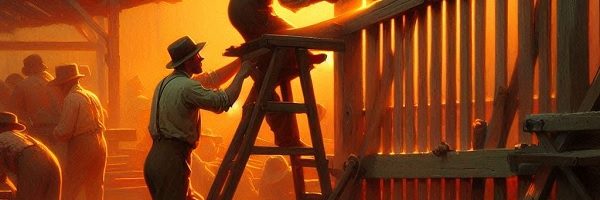Sometimes the fences that need mending exist right within the family.
Read More
Song Lyrics that Fit


Sometimes the fences that need mending exist right within the family.
Read More

Right, friendships. Those things we forge in the furnace of youth, fueled by shared baseball card collections and a desperate need for someone to understand our Nirvana obsession. But then, like a dodgy takeout of Indian curry, they often leave a sour aftertaste – only this time lasting far into adulthood.
Why? Well, let’s be honest. People change. Me, once the resident class clown, was later a beige-wearing computer professional with a crippling fear of roller-coasters. My closest friend, the quiet one who preferred bugs and beetles to The Beatles and rock n’ roll, is now a tattooed thrill-seeker base-jumping off mountains and out of airplanes. Suddenly, our weekends spent building pillow forts in my parents’ basement seem about as relevant as dial-up internet.
Then there are the arguments. The epic falling outs over who ate the last slice of pizza (looking at you, Robert) or that whole “borrowing my Kurt Cobain t-shirt and then mysteriously shrinking it in the washer” debacle. (“Never forgive, never forget”.) Suddenly, talking to your once-best bud feels like trying to have a philosophical discussion with a particularly stubborn pigeon (no offense Steven).
Now, some of you might be thinking, “But Kevin, what about the power of forgiveness? Of patching things up?” To which I say “bless your kind little hearts”. Have you ever tried to mend a ripped pair of jeans with duct tape? It looks desperate, don’t it? The same goes for fractured friendships. Sure, you can give or accept an apology (though let’s be honest, most apologies sound suspiciously like justifications these days), but the underlying resentment will always be there, like that rogue sequin still clinging to the bottom of your sneaker.
The worst part? Even if you manage to overcome your differences, the conversation will likely be as thrilling as watching paint dry. You’ll dredge up those tired old anecdotes (“Remember that time we…”), desperately trying to recapture a spark that has long since fizzled out. It’ll be like watching a particularly uninspired re-boot of a classic A Team episode.
Of course, there’s always the chance you’ll genuinely reconnect. Maybe you’ll discover a shared love of beige cardigans and sensible shoes? Maybe Robert finally fesses up to the pizza theft (justice!). But let’s be real, the odds are about as good as winning the lottery or being struck by lightning.
So, what’s the point? Here’s the thing: sometimes, letting go is the most mature option. Think of it like clearing out your wardrobe. You wouldn’t keep those neon green parachute pants from the 80s, would you? (Although, to be fair, they might be making a comeback – fashion is a fickle beast.)
Instead I suggest we focus on the good times. The laughter, the shared secrets, the time you accidentally set fire to Robert’s eyebrows while passing him a lit joint (oops). Cherish those memories, then move on. There’s a whole world of potential new friends out there, some of whom might even appreciate my questionable taste in music. Unless, of course, they try to borrow my latest almost new Nirvana t-shirt – then all bets are off.
–30–

Pocahontas.
I was born on the outskirts of London in 1947. I can’t claim to be a cockney as to claim that accolade, I would have to have been born within the sound of Bow Bells. I was born in North Woolwich, which is around eight miles from Bow bells. According to tradition to be a true Cockney, you would have to be born in the city’s east end and within the sound of the bells from St Mary-Le Bow in Cheapside.
I have no memory of living in London from this time.
My first memory was of us viewing our soon to be home when my family moved back to its roots in Gravesend in Kent. I distinctly remember looking out of the front bedroom window as my mother and father looked over the property and seeing a young boy of similar age to me sitting on the side of the pavement, who would later become my friend. I think his name was Michael, but this was over seventy years ago, you understand?
But although my father purchased the house, we were not destined to live there for a few years. Instead, a family member rented the property from my parents as we were going to live above a shop a few miles away. My mother was to work in the shop while my father would return to working at his old job as a milkman.
When I was around ten years old, my brother was completing his national service and he would bring presents back from the places he was stationed at. On one occasion, he bought me back a camera, my very first camera.
The first photo I would like to share with you is one of the first shots I ever took. It is of my mum outside of our shop with some children playing around the lamppost and with my father’s car beside the road, it would have been around 1957.
The shop was situated in Church Street, so as you can see there is the church in the background. I spent many an hour playing in the churchyard, running in between the gravestones, playing hide and seek. I remember one time being caught by my older brother’s wife relieving myself up against a gravestone and being given a good old fashion dressing down, in my defence I would only have been around seven or eight years old and the niceties of the respect you should show in such a place was yet to come to me. The gravestones were removed at some time later and the area was just laid to grass.
The church was and still is St. Georges Church and, as legend, has it the last resting place of Pocahontas. I’m sure you are aware of the story of this Indian princess who saved the life of an English settler and later converted to Christianity and married an Englishman and took the name of Rebecca Rolfe. On her journey back to the Americas she became ill and was brought ashore at Gravesend and, as legend has it died and was buried at the old Church.
The original church that she would have been taken to burned down in the eighteenth century and was rebuilt as we know it today.
There have been attempts to try and locate her final resting place, but to date she has not been found.
My second photo shows an attempt that was made to locate her on 31st of May in 1914 at 6am am in the morning, which, of course, was unsuccessful. The group had obtained an official home office order to complete their search, and they were a distinguished group who included the blind Rector of St Georges Cannon Gedge.
Gravesend is situated on the banks of the river Thames and is steeped in history, going back hundreds of years. I no longer live in the town. I’m a few miles away now, nearer to Rochester. The town has a famous old clock tower that was erected in September 1887 to commemorate Queen Victoria’s Golden Jubilee. The Jubilee was to celebrate the queen’s accession in 1837. Up and down the country, towns and villages were debating how to commemorate the occasion, and Gravesend chose to build a town clock tower. £679.14 shillings was raised by the town to start the project, which eventually cost just over a thousand pounds to complete. Under the foundations is a bottle containing newspapers of the time and coins minted for the occasion. My next two photos are of the clock tower at different times in its history.
I like a lot of old residents, are disappointed that the town now seems to have lost its way with lots of closed shops and I read of people that don’t want to walk in the town after dark, but perhaps that’s what happens when we get older, our memories are always of a much kinder and brighter past.
Alan Deakin
Hi, I came across your story of Joy and Arthur quite by chance after a random google search. I married my childhood sweetheart in 1968 at St Mark’s Church on the Overcliffe Gravesend Kent England. We met when she was sixteen and I was seventeen. We only had until 1988 when she sadly died. Her name was Janice Pearl Young. I don’t know if you know but Joys maiden name was Young. Joy was my wife’s older sister.
In around 1986-7, my wife joined Joy and Arthur at their home on Pacific Coast Highway in the knowledge that she only had a year or so to live. I recall she had a fantastic holiday with her mother, Joy and Arthur. I will try to send you a couple of photos of Joy and Arthur that may interest you.
I was very fond of them. Thanks for bringing back memories of them both together.
Alan Deakin